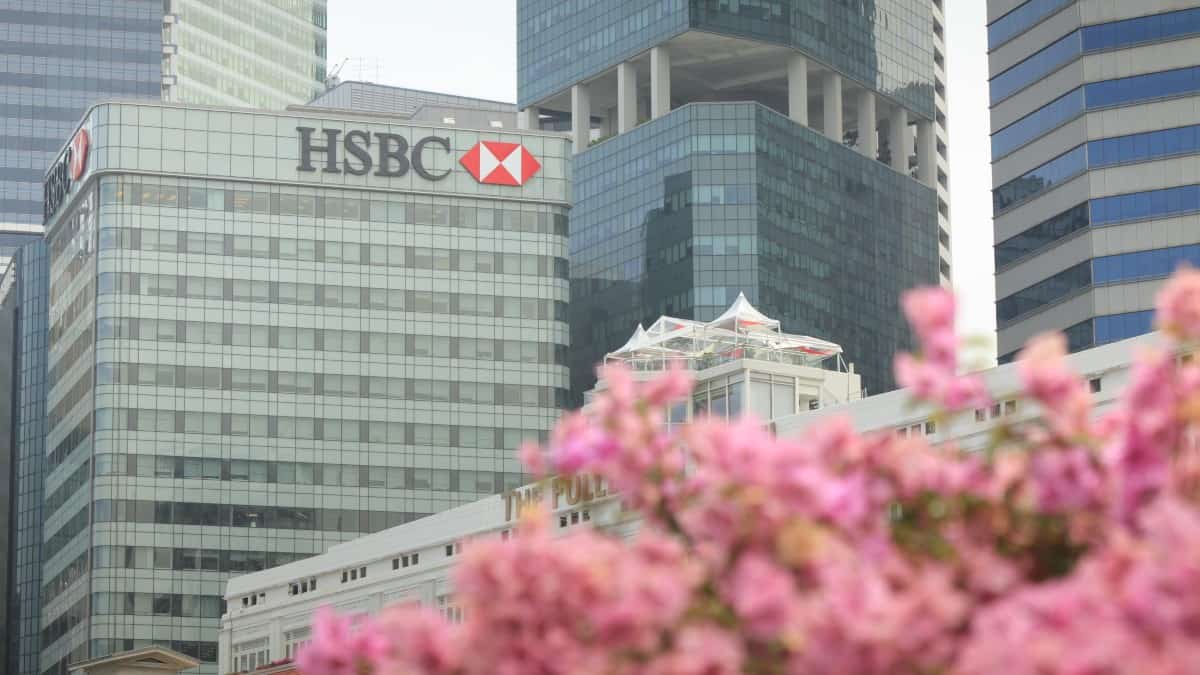Why I think the HSBC share price looks dirt-cheap

The HSBC (LSE: HSBA) share price has been under pressure over the past few years. Excluding dividends paid to investors, the stock has returned -30% over the past five years. However, thanks to a post-pandemic bump, shares in the banking giant have increased by 42% over the past 12 months.
But even after this market-beating performance (the FTSE 100 has returned just 25%, excluding dividends, over the past 12 months), I think the stock remains cheap compared to its potential.
HSBC share price potential
Several years ago, the lender’s management outlined a plan to pivot away from Western markets and focus on China, where it has an edge.
This was a sensible decision. Many of HSBC’s Western businesses have struggled to earn consistent profit.
The group’s French business is case and point. HSBC entered the French retail market in 2000 when it bought Credit Commercial de France for $10bn. Last year, the division lost €236m and, at the beginning of 2021, the lender sold this division for a symbolic €1.
Exiting underperforming businesses is always the right decision, in my mind. Continuing to lose money is not an outcome any manager wants. Losses erode shareholder value and can distract management.
Instead of shovelling money into unproductive businesses, HSBC is now focussing on growth markets. It’s looking to spend $6bn over the next five years to expand in Hong Kong, China and Singapore. Its wealth business will capture the lion’s share of this spending. It will hire as many as 5,000 new advisors to support growth.
Growth pivot
I think the market is missing the value HSBC will be able to generate from this growth pivot. One of the reasons why investors have been avoiding the business over the past five years is HSBC’s lack of progress in regions like France and the US.
Due to this headwind, and other challenges, group operating income growth has disappointed since 2016. That year, HSBC reported an operating income of $8.8bn. In 2020, the figure was $9.7bn, a disappointing annual growth rate of 2%.
By dumping underperforming businesses, HSBC should be able to reverse this trend. Sales and revenues may suffer, but overall profitability (and profit margins) should improve.
As such, I think the market still values the company on what it has been rather than what it could be.
Still, I can’t overlook the challenges the lender still faces. It could be years before the global economy fully recovers from the coronavirus pandemic, which could impact business growth.
What’s more, the low-interest rate environment, which HSBC can’t do anything about, and has been a drag on profits since 2009, may not let up any time soon. There are some indications that central banks will be hiking rates soon, but this is not guaranteed.
Despite these risks and challenges, I would buy the stock for my portfolio, considering its potential. I am also attracted to HSBC’s dividend yield, which stands at 2.5%, at the time of writing.
Free Report: 3 Shares To Try And Hedge Against Inflation
The Bank Of England has acknowledged that inflation is likely to peak above 4%, and stay there until the second quarter of 2022.
Some people are running scared, but if there’s one thing we believe you should avoid doing at all costs when inflation hits… it’s doing nothing.
That’s why we’ve put together a brand-new special report that uncovers 3 of our top UK and US share ideas to try and best hedge against inflation.
Because no matter what the economy is doing, a savvy investor will want their money working for them, inflation or not!
Best of all, we’re giving this report away completely FREE today!
Simply click here, enter your email address, and we’ll send it to you right away.
Rupert Hargreaves has no position in any of the shares mentioned. The Motley Fool UK has recommended HSBC Holdings. Views expressed on the companies mentioned in this article are those of the writer and therefore may differ from the official recommendations we make in our subscription services such as Share Advisor, Hidden Winners and Pro. Here at The Motley Fool we believe that considering a diverse range of insights makes us better investors.

Comments are closed.